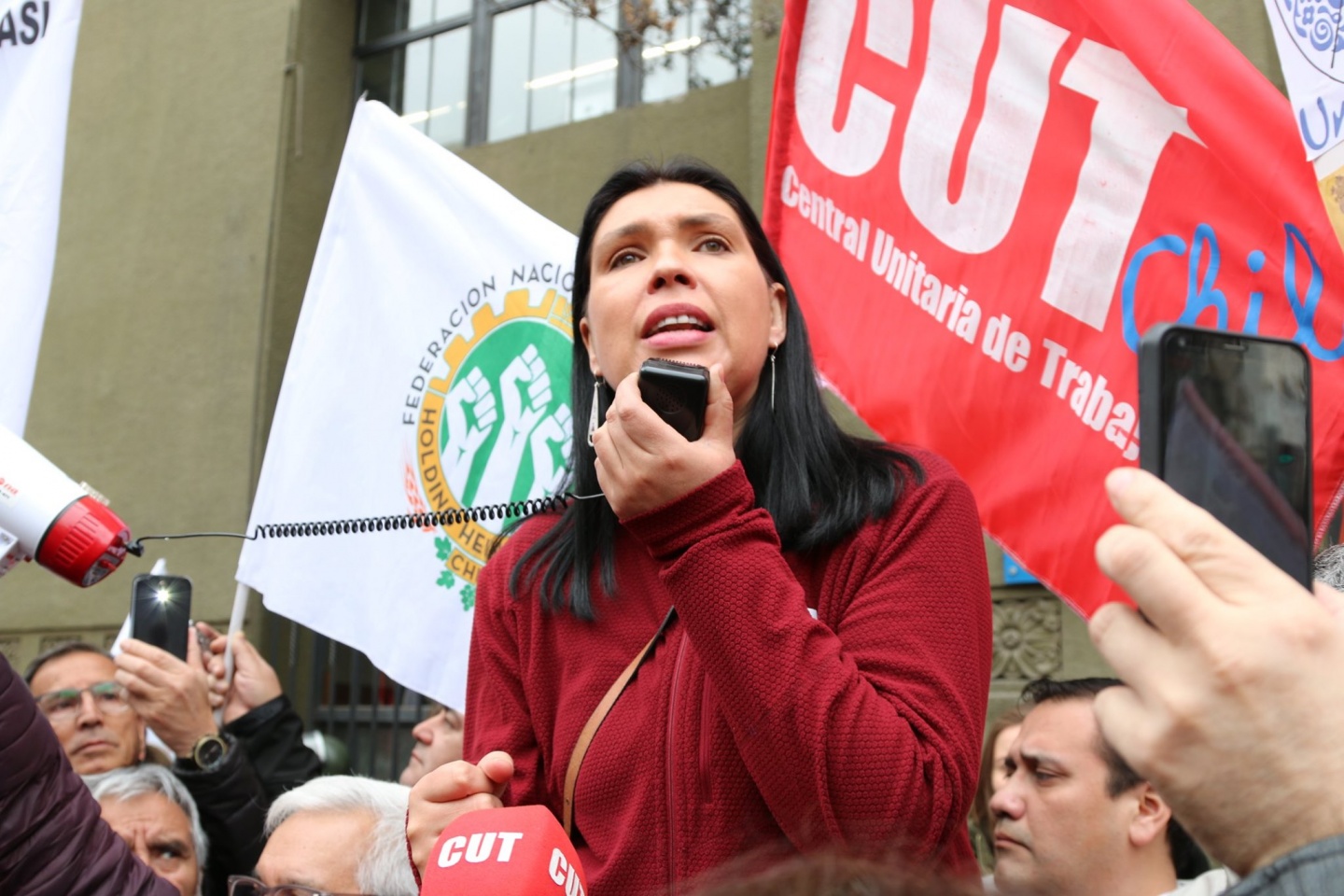23 April, 2020Bárbara Figueroa, president of Chile's Central Union of Workers (CUT), has received the 2020 Arthur Svensson International Prize for Trade Union Rights in recognition of her commitment to fighting for social justice.
Congratulations to the award!
I want to thank those who put my name forward, even though I haven’t been a union leader for very long. There are so many leaders in Chile and the wider region who have spent longer in the unions and who more than deserve to receive an award like this one.
I want to thank Víctor Báez, deputy secretary general of the International Trade Union Confederation, who thought it was important to nominate me because I'm young and the first female president of a central union, in both Chile and Latin America as a whole.
The prize committee voted for me unanimously, but the award is not just for me. I'm very proud to have received the prize, but this is an acknowledgement of the collective work of everyone at the CUT and of what the organization has achieved over the years. I'm also very proud that the workers can share in this happy moment.
The prize committee indicated that by awarding you this year's prize, they hope to help raise awareness of the current situation in Chile and to strengthen unions in their fight for workers' rights. Do you think it will help?
We hope so. One of the great benefits of this prize is that it will draw attention to the situation in Chile. Workers around the world are dealing with the pandemic, but the situation in Chile is quite unique.
The social uprising that began on 18 October last year has brought out a number of the usual negative views about our development model. These are dominant views in countries like Chile, which have a very aggressive economic model and where tensions with big business run high.
A prize like this helps to draw attention to these issues. It's no longer just about what people in our country think – we also get a more critical view from the international community of how industrial relations should be managed and how valuable unions can be. We hope this message will hit home.
Although it hasn't yet, unfortunately. The government's response to the pandemic has been very poor. Other countries have handled the crisis better by fostering a social dialogue – our government is a long way from that.
We know that this prize is a recognition of the role unions play. And with the current public health crisis, that role will probably become one of the key topics in the international debate. We hope that Chile will be part of that debate as well.
The prize committee also highlighted that CUT, through a combination of mass mobilizations and negotiations, has managed to raise the minimum wage and reduce the working week despite large-scale political resistance. Does this type of victory strengthen your drive and commitment to employment rights and union work?
Yes, it does. Prizes like this help us to ensure that labour relations are part and parcel of any process to advance democracy on the national agenda.
We cannot create fair, equal and democratic societies without including the world of work. We can do this as leaders, or by taking on a secondary role. Ensuring that industrial relations are viewed as vital to democracy is a very topical issue. It is one of our greatest challenges, and it will also require us to look carefully at our own organizations.
Unions are becoming increasingly democratic. By setting our own standards high, we can project our view of what society should look like in the future. This is what we have to try and achieve in Chile, even though everything is against us and the authorities are more committed to big business. This doesn't mean that society has fallen asleep at the wheel. Quite the opposite: it has woken up and is ready to fight.
We have an important task – we have to keep unions at the heart of every debate. We need to redistribute wealth and shift the balance of power in industrial relations if we are to build fairer and more equal societies. And we have to do this alongside other movements, like the feminist movement. We have to work together to achieve our demands.
You are the only female leader of a central union in the region; do you think you are paving the way for other women in a male-dominated culture?
We hope that prizes like this will help draw attention to inequalities among workers – men and women don’t join the workforce on equal terms.
I hope that the debate in the union movement will allow us to gain greater insight into these inequalities. This is one way that we can drive change and bring unions more in step with the times.
If you look at the figures, there are a lot of women in union leadership roles in Chile, but that's not enough. We have to ensure that getting women into the workforce and into leadership positions in unions is not just about gender, but rather about addressing all forms of inequality among workers. It should always be on our agenda, as should ensuring that young people have jobs.
Winning an international award because we have women leading our unions should help us to rethink our structures and organizations. Times have changed: we face different challenges and varied needs.
This process was already under way at CUT before I took over. It's always going to be a struggle, especially when the president of the union is a woman.
We were the first central union to introduce a quota of 30 per cent of women in all management bodies. We did this even before the labour law reform which set a one-third quota. We have moved forward, but we still have a long way to go.
